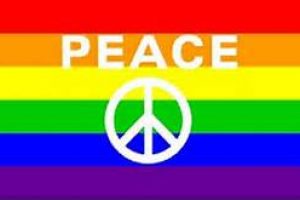Written by: Michelle Topal, MSW, LCSW – Adult & Child Therapist, Offering Individual, Couples, Family & LGBT Counseling
So, I was watching something where people were complaining about “political correctness” and how problematic it was. It got me thinking: What is the difference between political correctness and empathy? Political correctness became a disparaging term in the 1970’s and has been used as a way to dismiss ideas that someone might not agree with or care for. Accusations of political correctness have been used to justify not considering something, discrediting it and rationalizing why it does not have merit. When someone labels or judges something to be “politically correct”, it often leads to the person not even acknowledging or considering the ideas, concepts or experience that was labeled, and therefore shuts down any discussion and engagement. But is calling something politically correct just an excuse to be discriminatory or offensive; to not have to care about someone else’s ideas, thinking or experience or walk in someone else’s shoes? Don’t we need to be open, able to hear each other and care about the opinions or ideas, especially those, that we don’t agree with, in order to among other things, avoid “group think”, function in society, have the social intelligence requisite for caring for others and to have a world in which we can all live and thrive together peacefully.
What is wrong with wanting to care about other people’s feelings and what might be hurtful or offensive to them? Why would we challenge, i n a civil society, the need to respect the boundaries of others, as we would want them to do for us? Since when is empathy a bad thing, such that we are free to call it ‘politically incorrect”? Why is this an adversarial or divisive concept? Isn’t this the heart of empathy; caring about, being interested in and making room for the experience of others? On the other hand, can the desire for people to care about our feelings go overboard? Can we be too rigid or sensitive to how someone expresses opposing view points or concepts, that we constrain open communication and sharing? And if we are too demanding or sensitive in our need to have our feelings respected, can this lead to an empathetic person getting tied up in knots and making connection more closed, rather than more open. Or even worse, can this lead some people to use this as an excuse to just disengage completely or not engage at all? Is there a happy medium where we empathize with the needs of others, but at the same time forgive when someone inadvertently trespasses on our feelings?
n a civil society, the need to respect the boundaries of others, as we would want them to do for us? Since when is empathy a bad thing, such that we are free to call it ‘politically incorrect”? Why is this an adversarial or divisive concept? Isn’t this the heart of empathy; caring about, being interested in and making room for the experience of others? On the other hand, can the desire for people to care about our feelings go overboard? Can we be too rigid or sensitive to how someone expresses opposing view points or concepts, that we constrain open communication and sharing? And if we are too demanding or sensitive in our need to have our feelings respected, can this lead to an empathetic person getting tied up in knots and making connection more closed, rather than more open. Or even worse, can this lead some people to use this as an excuse to just disengage completely or not engage at all? Is there a happy medium where we empathize with the needs of others, but at the same time forgive when someone inadvertently trespasses on our feelings?
I don’t have the answers to these questions. I just have these questions churning around, as food for thought. I think dismissing something as politically correct, is just that, an excuse to be dismissive and insensitive to the needs and the experience of others. However, I think we also need to pick our battles and sometimes modify our expectations, so that we can keep communication open and make people feel good about their efforts to empathize, even if they miss the mark. It is vital that we hear each other, care about the experiences and needs of others and recognize the efforts of those who are indeed paying attention. In the current political climate, it seems that we ask too much and dismiss way too easily, hence keeping us stuck on opposite sides in what is, after all, a shared human condition. We can’t afford to meet intolerance with intolerance. So, what if when someone dismisses some idea as politically correct, instead of challenging, we ask them for their thinking about the subject and look for common ground and language? What if we open up and lean in, as they say, instead of pulling away and doubling down on our position? I don’t know that it will always work or if it will ever. But, when people feel heard, they tend to be able to hear back. Sometimes we need to model the empathy we need from others, and not expect it first. It is never easy, especially when we feel strongly or acutely about something. But if we’re listening, sometimes behind someone’s attempt to shut us down, is a person just wanting to be heard also. Let’s listen to that and see what happens. You never know.
(Also, see Why We Hate, by Steven Hayes, psychologist and founder of Acceptance and Commitment Therapy-ACT at http://m.huffpost.com/us/entry/10442080.html. It’s an awesome and inspiring article.)
Michelle Topal, LCSW is an LGBT Therapist in Raleigh & Durham NC, specializing in the needs of the LGBT community, couples therapy & marriage counseling, child therapy, family counseling and parenting support for over 30 years. Call now to see how I can help!






Leave a Reply
Your email is safe with us.